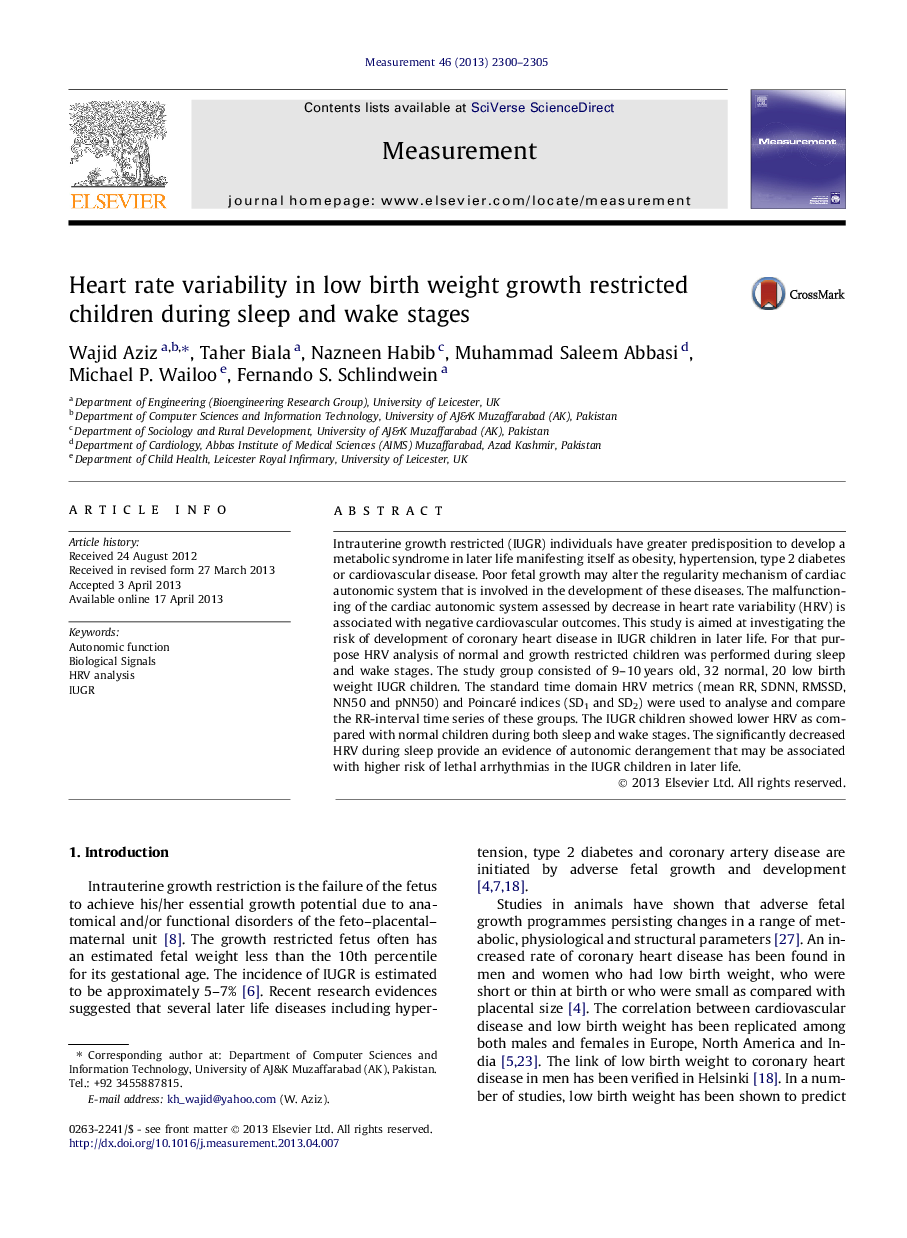| Article ID | Journal | Published Year | Pages | File Type |
|---|---|---|---|---|
| 10407556 | Measurement | 2013 | 6 Pages |
Abstract
Intrauterine growth restricted (IUGR) individuals have greater predisposition to develop a metabolic syndrome in later life manifesting itself as obesity, hypertension, type 2 diabetes or cardiovascular disease. Poor fetal growth may alter the regularity mechanism of cardiac autonomic system that is involved in the development of these diseases. The malfunctioning of the cardiac autonomic system assessed by decrease in heart rate variability (HRV) is associated with negative cardiovascular outcomes. This study is aimed at investigating the risk of development of coronary heart disease in IUGR children in later life. For that purpose HRV analysis of normal and growth restricted children was performed during sleep and wake stages. The study group consisted of 9-10Â years old, 32 normal, 20 low birth weight IUGR children. The standard time domain HRV metrics (mean RR, SDNN, RMSSD, NN50 and pNN50) and Poincaré indices (SD1 and SD2) were used to analyse and compare the RR-interval time series of these groups. The IUGR children showed lower HRV as compared with normal children during both sleep and wake stages. The significantly decreased HRV during sleep provide an evidence of autonomic derangement that may be associated with higher risk of lethal arrhythmias in the IUGR children in later life.
Related Topics
Physical Sciences and Engineering
Engineering
Control and Systems Engineering
Authors
Wajid Aziz, Taher Biala, Nazneen Habib, Muhammad Saleem Abbasi, Michael P. Wailoo, Fernando S. Schlindwein,
